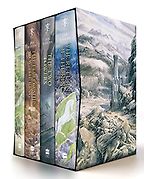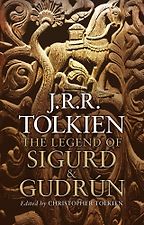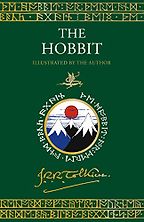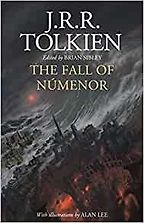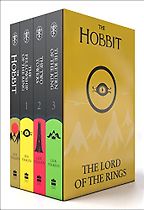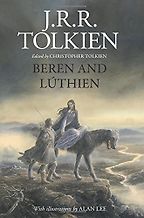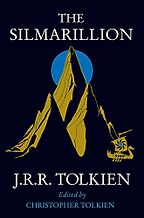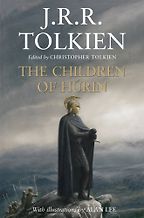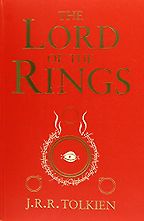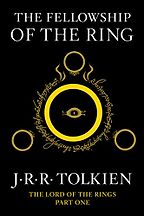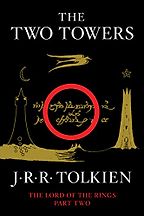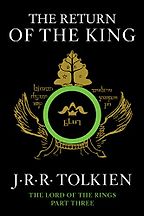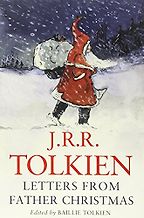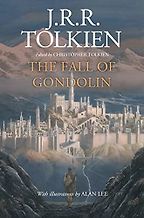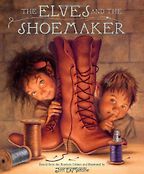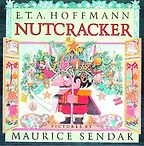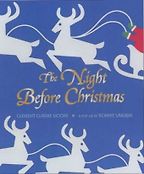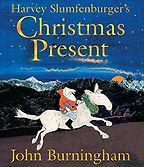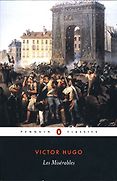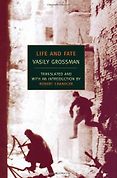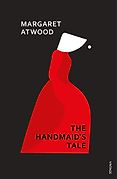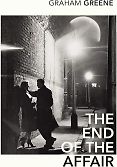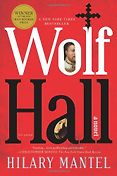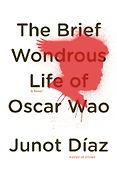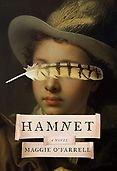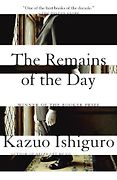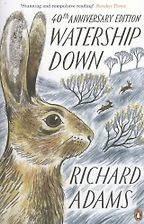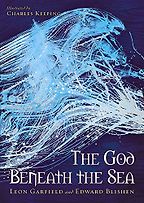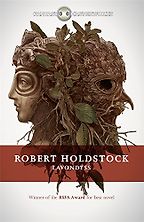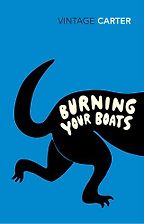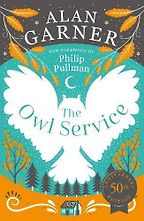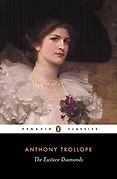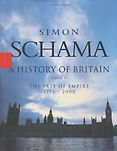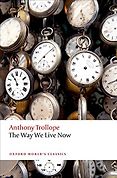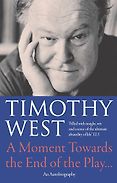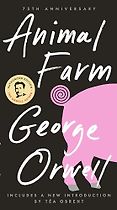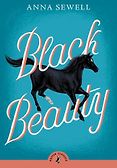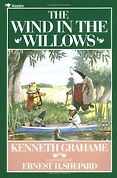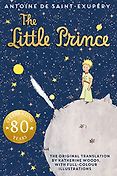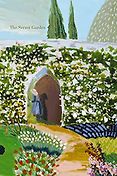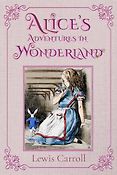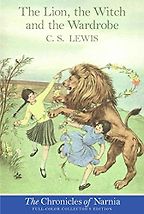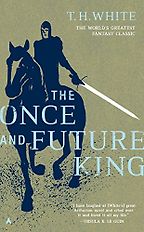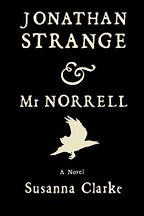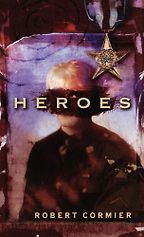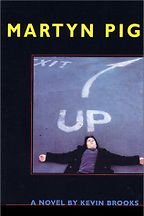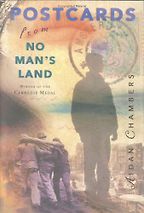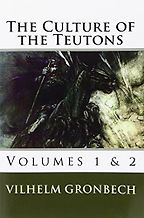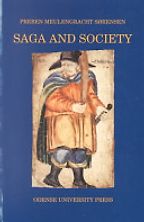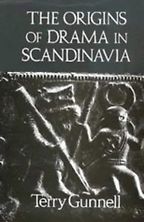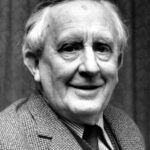
Books by J R R Tolkien
John Ronald Reuel or JRR Tolkien (1892-1973) was a professor of Anglo-Saxon and later of English language and literature at Oxford University, best known for writing two fantasy novels: The Hobbit (1937) and The Lord of the Rings (1954-5). He was of the generation of Englishmen who fought in World War I. As he wrote in the foreword to the 2nd edition of The Lord of the Rings, “by 1918 all but one of my close friends was dead.” However, he insisted that his books were not intended as an allegory for anything.
As a writer, he felt that England lacked its own myths and heroic legends. The fantasy world he created in Middle-earth and beyond is extremely detailed, with lots of history and even its own languages and grammar. It was combining this backdrop with the tales of hobbits that he told to his children that made for the intoxicating saga that is The Lord of the Rings.
Illustrated LOTR Boxset
by J R R Tolkien
A beautifully illustrated LOTR boxset, for those getting the books as a gift or if you don't mind a higher price point.
The Legend of Sigurd and Gudrún
J R R Tolkien, Christopher Tolkien (editor)
“Tolkien is mainly known for The Hobbit, The Lord of the Rings, and so on, but he was a Professor of Anglo-Saxon at Oxford and wrote a fair number of scholarly works and articles. The Legend of Sigurd and Gudrún is a creative work, consisting of two long poems written in Modern English but mainly in epic metre. Now, the main manuscript in which the eddic poems are preserved is called the Codex Regius, and the unfortunate thing is that some eight leaves of this manuscript are missing…This is essentially the story of how Sigurd and Brynhild get together and are betrothed, but in various ways are tricked, so that Sigurd marries Gudrún instead. Brynhild in revenge arranges for Sigurd to be killed and then she commits suicide. We know the details of the story from various sources, but the sources conflict with each other, and Tolkien does his best to give them coherent form.” Read more...
The best books on Old Icelandic Culture
Rory McTurk, Theologians & Historians of Religion
“This one book, which was published in 1937, defined so many variables for the fantasy tradition that are still in place today. Tolkien’s extraordinary achievement was to recover the epic landscapes of Anglo-Saxon myth, bring them back to life, and then to take us through them on foot, so we could see the details up close, at human scale. The Hobbit is both mythic and relatable at the same time – The New Yorker writer Adam Gopnik called it ‘an arranged marriage between the Elder Edda and The Wind in the Willows’, and I think that’s entirely fair. Though I would give more credit to the bass register of Tolkien’s imagination, its abyssal depths. Mole never delved as deep as the Mines of Moria.” Read more...
Lev Grossman, Novelist
The Fall of Númenor
J R R Tolkien, Alan Lee (illustrator), Brian Sibley (editor)
The Fall of Númenor is a collection of Tolkien's writings on the Second Age of Middle-earth, put together by British writer and Tolkien expert Brian Sibley and illustrated by Alan Lee. This is the period before the adventures of The Hobbit and The Lord of the Rings (which take place in the Third Age of Middle-earth). Númenor is the island where the Dúnedain live and from whom Aragorn—the king in The Return of the King—is descended.
The book may be distantly connected to the Amazon Prime series The Rings of Power, also set in the Second Age of Middle-earth.
The Hobbit & The Lord of the Rings Box Set
by J R R Tolkien
If you're looking for a good, reasonably priced Lord of the Rings boxset, this is a good choice. The cover images of each book are by JRR Tolkien himself and the books include maps by Christopher Tolkien, his son. At the end of The Return of the King, there is also an index (useful as not only are there many characters in Lord of the Rings, but many have more than one name).
Beren and Lúthien
J R R Tolkien, Alan Lee (illustrator), Christopher Tolkien (editor)
🎧 Winner of an AudioFile Earphones Award for a truly exceptional audiobook
“Beren and Lúthien is based on Tolkien’s own experience. It was inspired by seeing his own wife, Edith, dancing in a wood, under the moonlight, amongst hemlock flowers. And this created an image in his mind that he kept on reworking throughout his life. But that it the central image. When she died he had the name Lúthien inscribed on her gravestone. When Tolkien died, his children inscribed the name Beren on his.” Read more...
Books Drawn From Myth and Fairy Tale
Alan Lee, Cartoonists & Illustrator
“Tolkien didn’t set out to write novels, he set out to create a world. He wrote The Hobbit almost by accident–because he was telling the stories to his children, you see. After that his publishers wanted a follow up to The Hobbit, so he said ‘Well, I’ve got this thing I’ve been working on,’ which was the manuscript of The Silmarillion. They balked at that and asked if he had anything else with more Hobbits in it. So, he set himself to the task of writing a sequel which grew and grew and grew.” Read more...
Books Drawn From Myth and Fairy Tale
Alan Lee, Cartoonists & Illustrator
The Children of Húrin
J R R Tolkien, Alan Lee (illustrator), Christopher Tolkien (editor)
“It is essentially about the sons of a man called Húrin who are trying to recover what they lost with his death. They are claiming their own stories and glories, trying to be good people, and often failing.” Read more...
If You Liked The Lord of the Rings: Other Books in Tolkien’s World
Valentin, Children
The Lord of the Rings
by J R R Tolkien
Tolkien published The Lord of the Rings in three parts: The Fellowship of the Ring, The Two Towers (both in 1954) and The Return of the King (1955). This edition allows you to buy all three of them as a single volume. At more than 1,100 pages, it's a large book and perhaps easier to read on a Kindle. Perhaps even better is to buy the whole Lord of the Rings epic as a boxset, whether plain or one of the beautifully illustrated editions.
The Fellowship of the Ring (Lord of the Rings Part One)
by J R R Tolkien
The paperback edition of The Fellowship of the Ring, pictured, includes not only the story and maps, but also an enlightening foreword by JRR Tolkien himself, which he wrote for the second edition.
The Two Towers (Lord of the Rings Part Two)
by J R R Tolkien
Starting out with a two-age synopsis of Part One (The Fellowship of the Ring) the paperback edition of The Two Towers pictured includes 7 pages of maps which are very useful at this stage of the story, where the members of the fellowship split.
The Return of the King (Lord of the Rings Part Three)
by J R R Tolkien
As in Part 2, this paperback edition of The Return of the King opens with a synopsis of what's happened previously. As well as maps (vital for understanding what's going on), at the back of the book are more than 100 pages of appendices, including two alphabets: one of letters, one of runes. There is also a handy index for the entire trilogy, divided up into "Songs and Verses","Persons Beasts and Monsters","Places" and "Things".
“Every December an envelope bearing a stamp from the North Pole would arrive for J R R Tolkien’s children. The letters were from Father Christmas.” Read more...
Igreth the Elf, Miscellaneou
The Fall of Gondolin
J R R Tolkien, Alan Lee (illustrator), Christopher Tolkien (editor)
“Gondolin is an elvish city in the mountains in a vast land, that has survived through being hidden for centuries.” Read more...
If You Liked The Lord of the Rings: Other Books in Tolkien’s World
Valentin, Children
Interviews where books by J R R Tolkien were recommended
-

1
The Silmarillion
J R R Tolkien, Christopher Tolkien (editor) -

2
The Children of Húrin
J R R Tolkien, Alan Lee (illustrator), Christopher Tolkien (editor) -

3
Beren and Lúthien
J R R Tolkien, Alan Lee (illustrator), Christopher Tolkien (editor) -

4
The Fall of Gondolin
J R R Tolkien, Alan Lee (illustrator), Christopher Tolkien (editor) -

5
The Fall of Númenor
J R R Tolkien, Alan Lee (illustrator), Brian Sibley (editor)
If You Liked The Lord of the Rings: Other Books in Tolkien’s World, recommended by Valentin
If You Liked The Lord of the Rings: Other Books in Tolkien’s World, recommended by Valentin
In recent years there has been a steady flow of JRR Tolkien books published posthumously. If you liked The Lord of the Rings and are wondering what to read next, 16 year old Valentin guides you through some of his other favourite books set in the vast world that Tolkien created.
The best books on Elves, recommended by Igreth the Elf
Elves are often misunderstood or misrepresented over the Christmas period – Christmas cracker jokes have never been kind to these tiny heroes of the festive season. Here Igreth the Elf, great-great-great-grandson of Ilbereth the Elf, sets the record straight and introduces five children’s books that celebrate the extraordinary contribution these diminutive creatures make to Christmas itself.
-

1
The Hobbit
by J R R Tolkien -

2
The Fellowship of the Ring (Lord of the Rings Part One)
by J R R Tolkien -

3
The Two Towers (Lord of the Rings Part Two)
by J R R Tolkien -

4
The Return of the King (Lord of the Rings Part Three)
by J R R Tolkien -

5
The Silmarillion
J R R Tolkien, Christopher Tolkien (editor)
Lord of the Rings Books in Order
Lord of the Rings Books in Order
The books that, loosely speaking, make up the story of JRR Tolkien‘s The Lord of the Rings are well worth reading, better—or at least very different—from the films. These are stories of adventure that have the epic feel that the movies capture, but against a backdrop of conviviality and the pleasures of eating, drinking and telling stories by the fireside as you gather with your companions. Notably, the books are filled with poems that are composed and told by the main characters and pay homage to an oral storytelling tradition that has largely disappeared from our culture but Tolkien clearly admired.
-

1
Les Misérables
by Victor Hugo -

2
Homeland (Patria)
by Fernando Aramburu and Alfred MacAdam (translator) -

3
Life and Fate
by Vasily Grossman and translated by Robert Chandler -

4
In Search of Lost Time
by Marcel Proust -

5
The Tale of Genji
by Murasaki Shikibu & translated by Edward G. Seidensticker -

6
Clarissa
by Samuel Richardson
Long Novels
Long Novels
Shorter is better is the mantra of the digital age, but for some of us, there is no greater pleasure than reading a really long novel. Here we’ve listed some of the novels recommended on Five Books that are 400,000 words or more long, from literary classics to potboilers.
Great Actors Read Great Novels
If you enjoy listening to books as audiobooks, it’s a great time to be alive. From Rosamund Pike narrating Pride and Prejudice, Jeremy Irons reading Lolita to Meryl Streep telling the story of Heartburn, many prominent actors have signed up for performing their favourite books in unabridged versions.
Best Science Fiction and Fantasy for Young Adults, recommended by Philip Reeve
Award-winning author Philip Reeve talks us through the science fiction and fantasy books that shaped him and his work in profound ways; among indubitable classics are vibrant lesser-known works awaiting discovery.
Books Drawn From Myth and Fairy Tale, recommended by Alan Lee
Alan Lee, illustrator of such classics as The Lord of the Rings and The Hobbit, talks to Five Books about his favourite stories drawn from myth and fairy tale, what they mean to him, and how important it is for young readers today to experience these ancient stories.
-

1
The Eustace Diamonds
by Anthony Trollope -

2
A History of Britain, Volume III: The Fate of the Empire 1776–2000
by Simon Schama -

3
Beren and Lúthien
J R R Tolkien, Alan Lee (illustrator), Christopher Tolkien (editor) -

4
The Way We Live Now
by Anthony Trollope -

5
A Moment Towards the End of the Play
-

6
Animal Farm
by George Orwell
Audiobooks Narrated by Timothy West
Audiobooks Narrated by Timothy West
As well as appearing in many plays and movies, the British actor Timothy West (1934-2024) was a great narrator of audiobooks. He narrated a large number of Victorian novelist Anthony Trollope’s works, as well as abridged versions of Simon Schama’s History of Britain, a three-volume work. Below, some of the books in his audiobook oeuvre (not all are easy to get hold of or are only available in some countries).
Classic Children’s Books
From the lessons in logic embedded in Alice’s Adventures in Wonderland to the lore that J.R.R. Tolkien tried to create in The Hobbit and The Lord of the Rings, there is more to many iconic books than a good story for kids. Here’s our roundup of some of the children’s classics that have been recommended on Five Books over the years.
The best books on Fantasy, recommended by Lev Grossman
We’re living through a golden age for fantasy, says fantasy novelist and book critic Lev Grossman, author of The Magicians and The Bright Sword. He tells us what makes for a good fantasy novel, and who’s staking out the future not just of fantasy but of fiction as a whole.
Children’s and Young Adult Fiction, recommended by Melvin Burgess
Melvin Burgess, author of Junk and Doing It, tells us about the books that first inspired him, and picks the best thriller writing for young adults. Along the way he explains why young people make the most demanding readers.
Magical Stories for Kids, recommended by Cressida Cowell
From wizards to alchemy and fairies to folklore, Cressida Cowell reveals the magical stories that were most important to her as a child (and which she now delights in sharing with her own children), and her own inspirations for writing about magic and magical worlds today.
The best books on Old Icelandic Culture, recommended by Rory McTurk
Rory McTurk, Emeritus Professor of Icelandic Studies at the University of Leeds, introduces us to the landscape of old Icelandic culture, addressing the Icelandic sagas, medieval Nordic history, and links to Anglo-Saxon England.
